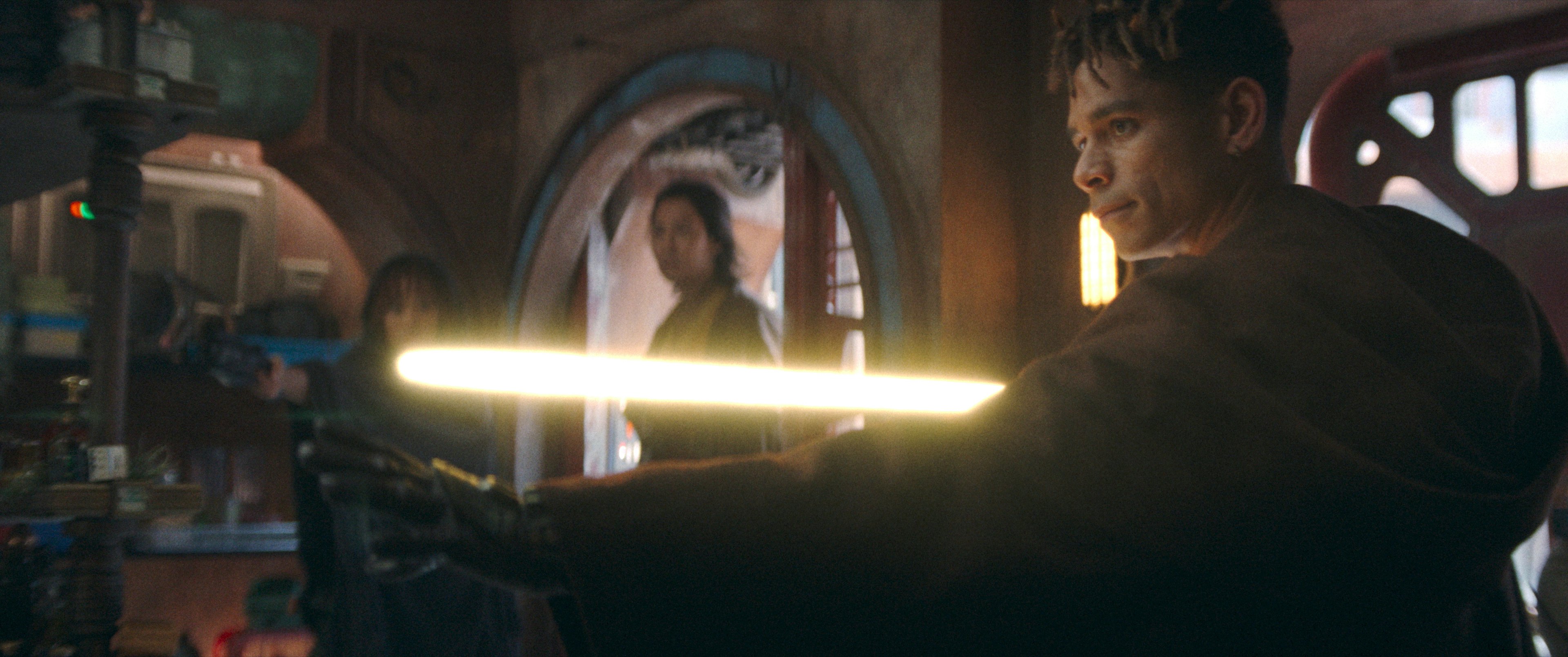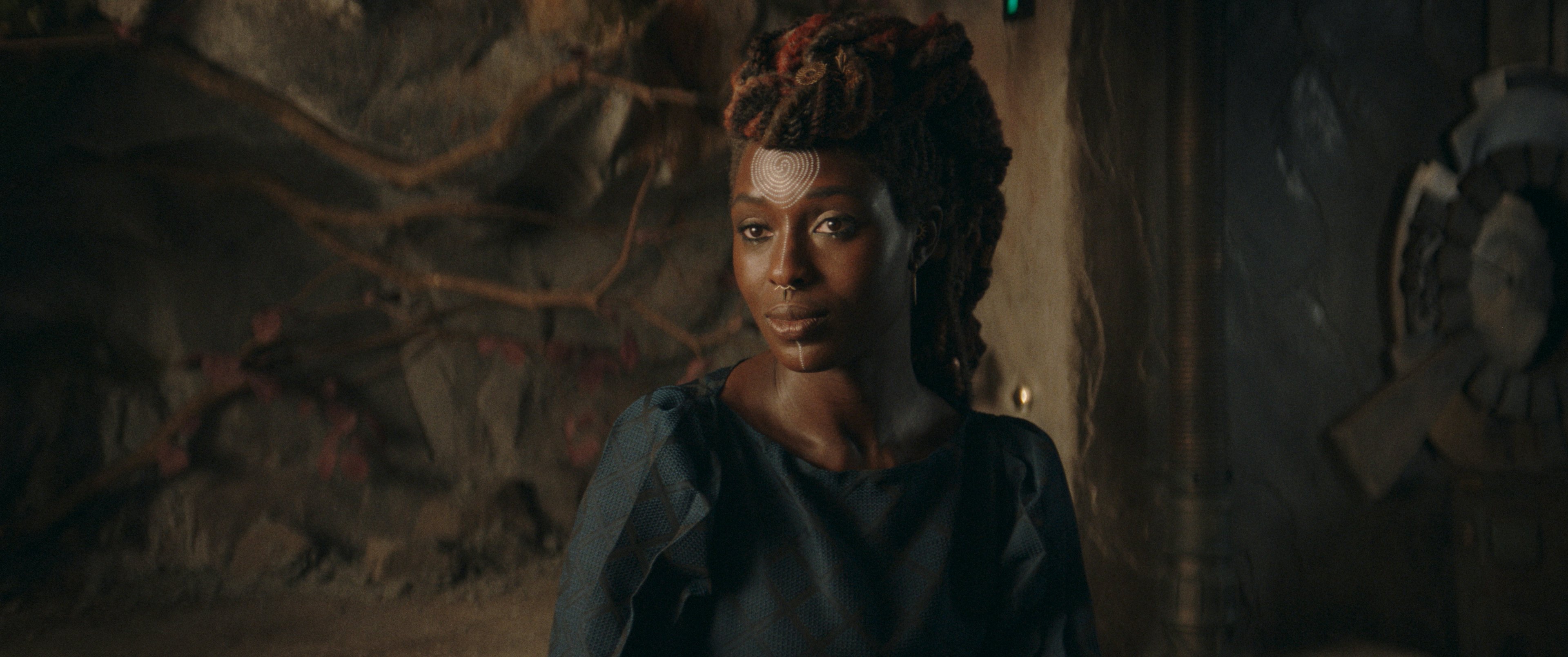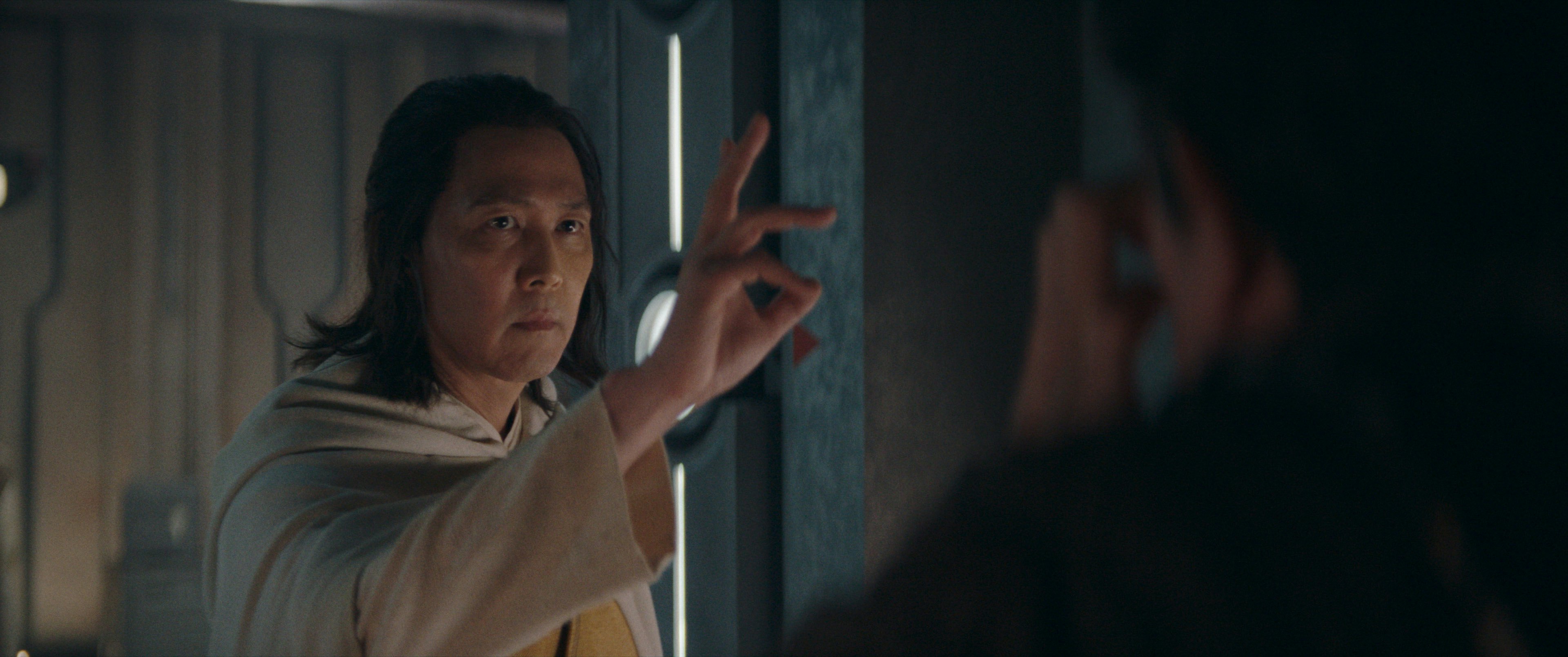
In the classic Star Wars trilogy, the Force was viewed as an “ancient religion” by Admiral Motti and as a “hokey religion” by Han Solo. Meaning that, after the fall of the Republic, everyone from fascist bureaucrats to good-hearted smugglers had less than serious opinions about the Force. But over a century before that, the Force functioned much differently in day-to-day life. Instead of existing as a “mystical energy field” that random farmboys had never even heard of, in the days of the High Republic, the Force was not only widely known and understood, it was also legislated.
As Star Wars: The Acolyte continues to unspool new threads about the nature of the galaxy before The Phantom Menace, one very specific detail in Episode 3, “Destiny,” creates a new precedent that changes our view of the Jedi forever. Not only are Jedi figuring out who is and isn’t a known Force-user, like some kinds of space cops. They’re also empowered to separate kids from their families without any mind tricks, but simply, through the rule of law.
Spoilers for The Acolyte, “Destiny,” ahead.
Most of the third episode of The Acolyte is focused on an extended flashback to what exactly happened on Mae and Osha’s home planet of Brendok, prior to the events of the show. We see Mae and Osha as little kids throughout, and get a full view of their upbringing, in a coven of Force witches, who don’t call the Force the Force, but rather view it as “the Thread.” In contrast to the Dathomirian witches from The Clone Wars and Ahsoka, the witches in The Acolyte aren’t presented as villains, but instead as kindly women who happen to practice their Force “magic” a little differently than the Jedi.
However, the Jedi are decidedly not like Starfleet in Star Trek, because they feel totally allowed to interfere with another culture, in this case, a culture of witches. Meanwhile, the Republic doesn’t appear to be a tolerant government that celebrates diverse viewpoints, but instead, has a specific set of laws that give the Jedi seemingly carte blanche to do whatever they want when it comes to recruitment of new Jedi. When Jedi on Brendok get wind of the fact that two Force-sensitive children are being hidden by the coven, Master Indira says “We are concerned you are training children, Republic law states —” before Mother Aniseya cuts her off saying, “Brendok is not part of the Republic.”

Because we know so little about the actual rules of the Republic at this point in the Star Wars timeline, one might assume that the Jedi have no influence outside of planets that are legally part of the Republic. And yet. Later, Master Indara doubles down saying, “You cannot deny that the Jedi have the right to test potential Padawans.”
This feels like the conversation they just had a few minutes prior, but now, instead of Indara evoking Republic law, she insists that the Jedi have some sort of innate right to recruit kids even against the parent’s will. She adds, “With your permission, of course,” but that detail feels disingenuous and manipulative. What was Mother Aniseya supposed to say?
This is similar, in a sense, to Qui-Gon Jinn seeing the potential in Anakin Skywalker, and plucking him from Tatooine in The Phantom Menace. Master Sol insists, “the Jedi do not take children,” but they totally do. We saw Qui-Gon do it in The Phantom Menace, the difference there was that Anakin’s mother, Shmi, was supportive of the idea. In The Acolyte, we see Mother Aniseya eventually validate Osha’s interest in the Jedi, even though it clearly goes against her beliefs and concerns.
Still, despite Sol’s kindliness and Osha’s genuine childlike wonder in the Jedi, you can’t help but feel that Mother Aniseya and the other witches are right and the Jedi are wrong. Osha ends up quitting the Jedi Order anyway, and everything that happens on Brendok seems to create more problems than it solves. Jedi being allowed to supervise Force-sensitive children on planets in the Republic is one thing. But what happens here is that we see the Jedi assert that legal authority and turn it into a moral imperative. Indara suggests the Jedi have a right to test children in the ways of the Force, but what The Acolyte smartly points out in this episode is that the test is based on the way the Jedi think about the Force.

In other types of science fiction, if a spacefaring group as powerful as the Jedi encountered a planet in which children had extraordinary powers but that planet didn’t fall under their legal jurisdiction, the whole thing would present an ethical quandary. To put it another way, you can’t imagine the Doctor in Doctor Who trying to take a magical child away from a coven of witches, nor can you imagine Captain Picard in Star Trek: The Next Generation doing something like this. For Indara and the rest of the Jedi, there’s no moral question at all. They feel they have a right that supersedes the rights of the coven, for reasons that are not really justified or explained.
So, the Jedi in The Acolyte feel like extremists in this moment. If Sol wasn’t being sweet to Osha we’d have no reason to side with them at all. Obi-Wan Kenobi told Anakin that “only a Sith deals in absolutes,” but with their pushy and intrusive rules about children, the Jedi of this era seem to be pretty devoted to absolutes. And so, for the first time in a long time, it’s hard to know who the heroes are and who the villains are in this era of the galaxy far, far away.







